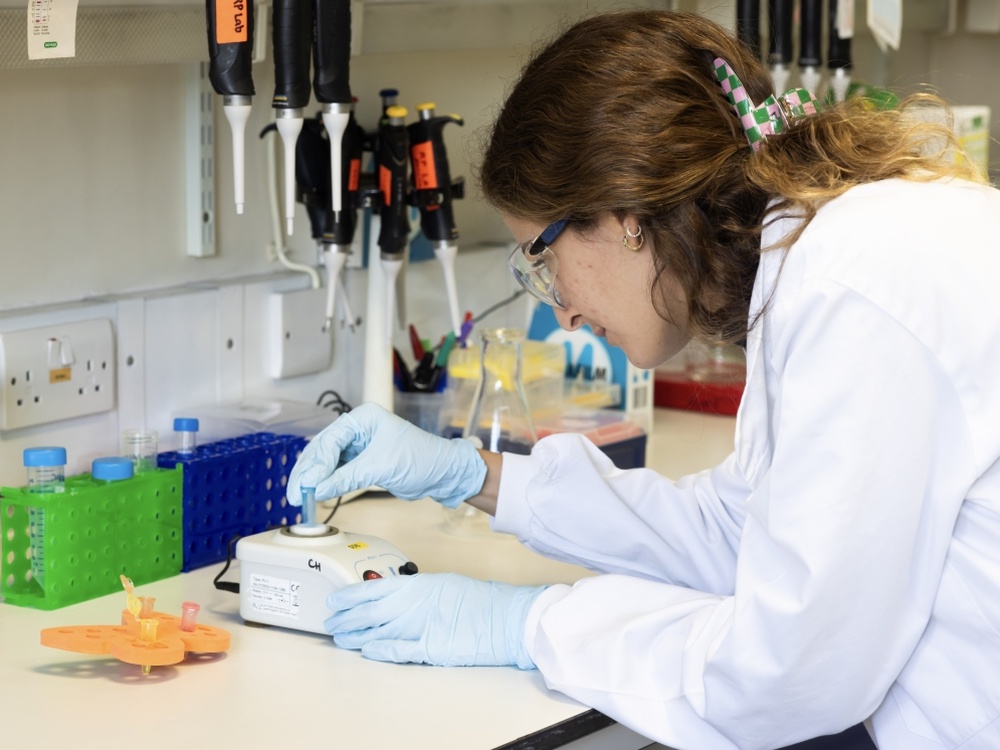The Lily Precision Diagnostics project introduces an innovative diagnostic model designed to accelerate the analysis of suspected mitochondrial disease cases, addressing a critical gap in current NHS diagnostic services. Using cutting-edge data analysis and bioinformatic techniques, the project seeks to help patients who are still waiting for a confirmed diagnosis due to bottlenecks in existing diagnostic pathways.
Expanding nationwide
The project has reached an exciting milestone with the recent launch of its recruitment stage. Initial recruitment sites are now open at UCLH (London) and Cambridge, with clinicians across the UK helping to identify patients suspected of having mitochondrial disease but who do not yet have a confirmed diagnosis via the NHS.
Over the next few months, additional sites are set to open at Oxford, Moorfields Eye Hospital London, Guy’s Hospital London, Evelina Children’s Hospital London, Queen Elizabeth Birmingham, Birmingham Women and Children’s, Sheffield, St Mary’s Manchester, Newcastle and Bristol. This national reach marks a significant step forward in expanding access to precision diagnostics for mitochondrial disease sufferers.
A collaborative effort to boost diagnosis rates
The Lily Foundation are collaborating with leading NHS mitochondrial centres in London, Oxford and Newcastle on this project, which has the potential to increase mitochondrial disease diagnosis rates by up to 20% – an impressive leap for patients in desperate need of answers.
To further support this critical work, we’ve brought a Junior Bioinformatician onto the study, and have also financed a key new role, that of a Senior Translational Clinical Scientist. In the coming six months, the team will focus on identifying, recruiting and diagnosing patients, offering hope and clarity to those who have been waiting in limbo.
Tackling the complexities of mitochondrial disease diagnosis
Diagnosing mitochondrial disease involves testing a patient’s DNA in order to pinpoint the mutation responsible, which can be challenging given that each person carries millions of genetic variations. Although DNA testing is available via the NHS, a lack of access to advanced genetic techniques and specialist personnel has led to a backlog, leaving many complex cases undiagnosed.
Dr Robert Pitceathly, lead Principal Investigator on the Precision Diagnostics project, commented: “Mitochondrial diseases are complex and achieving a genetic diagnosis often requires both cutting-edge technology and a high level of clinical understanding. That’s precisely what this project is funding. We’ll potentially identify genetic changes that would not be detected using routine methods, and offer affected families a diagnostic service that might not be available through the NHS for several years.”
Dr Maria O’Hanlon, Research Manager at The Lily Foundation, added: “Having a genetic diagnosis is crucial for families affected by mitochondrial disease. It gives them certainty, helps them plan for the future and opens up options for prenatal testing during pregnancy and IVF procedures for subsequent children.”
As well as benefitting those currently awaiting a diagnosis, this research will contribute to our broader understanding of mitochondrial diseases, helping to guide patient management and bringing us closer to potential treatments and, ultimately, a cure.

